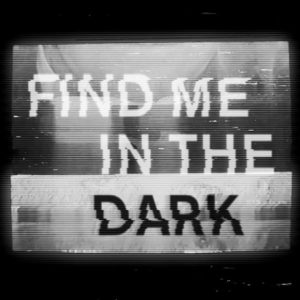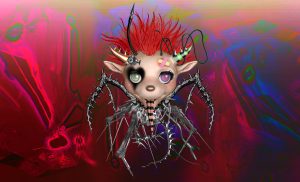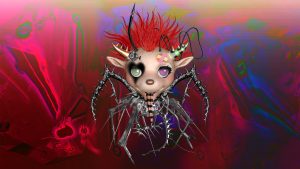“It so obviously is a strong signifier for being displaced in your physical surroundings,” writes mobilegirl (aka Bao-Tran Tran) over email from her base in Berlin on the transcendent qualities of metaverse games like IMVU and Second Life, recently repurposed into clubs amidst pandemic. Unlike streaming-focused events, the open-flight worlds, and seemingly endless wardrobes inherent to these platforms characterize a realm of possibility warmly familiar to Bao. “These virtual worlds allow you to create a persona or to just express yourself in a way you cannot in real life, and I love that so much.”
Ideas of a digital self in connection to larger worlds (whether virtual or IRL) come through frequently across Bao’s discography, one that’s continued the legacy of global club vanguardists Nguzunguzu and their 2011 release Timesup, and The Perfect Lullaby series. Bao’s approach to meshing classic RnB sounds with an array of new era dance tropes has earned her notable roles in Stockholm’s Staycore collective, on DISCWOMAN’s talent roster, and as the producer of inclusive fashion brand Chromat’s 2019 runway score.
Beyond the namesake of her alias—an homage to the Mobile Girl MiM online sticker pack—there’s an aspect of Bao’s work that playfully obscures supposed boundaries between the real and virtual. Subtle footsteps underscore pensive synthetic melodies, adding an open world dimension to her mix for Wysing Arts Centre‘s Polyphonic festival, running August 4 to 31 and September 5. Meanwhile, the ‘Hottie Lottie Lesbian Room’ cover art for her ‘SOCIALDISTANCETUNE’ track is directly sourced from IMVU. As fringe virtual settings have become increasingly normalized in club culture, I’m curious to know Bao’s position on finding a sense of belonging and community within these online spaces.
**You recently spoke on the escapist and cathartic qualities of nightlife. Has your perception of this changed at all throughout the pandemic?
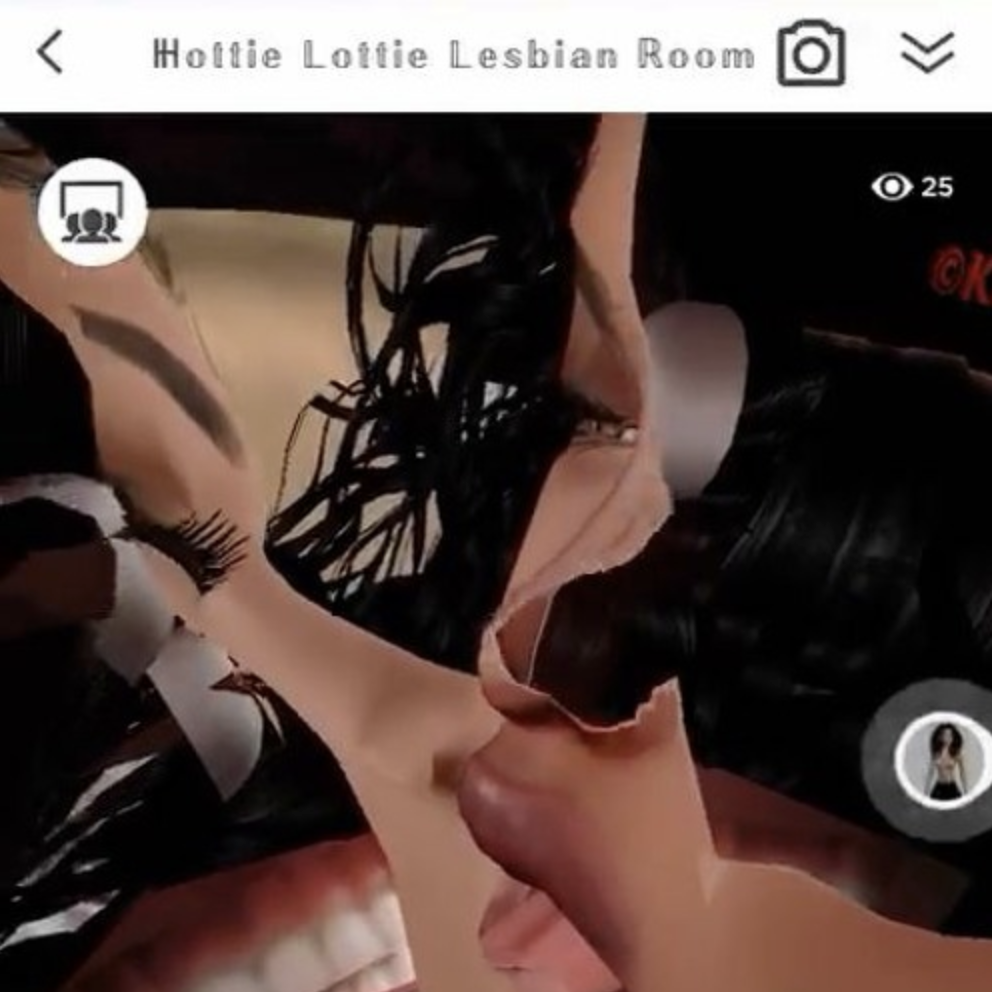
mobilegirl: Absolutely not. The absence of nightlife really confirmed its qualities for me. I’ve never gone out that much, and there are a lot of aspects I find quite annoying even, but not being able to do so at all does take away that one necessary release every now and then. It’s the combination of experiences that make it so immersive and by no means replicable with all these restrictions. Really loud music, packed dancing, all the gross smells… Then, of course, also a distant sense of belonging. Not saying I relate to everyone going to the same party as me, but club nights undoubtedly bring together similar-minded people.
**Queerness and internet subculture have always been intrinsically connected. With regards to music, do you think this relationship has been impacted by online livestreams and virtual clubs entering the norm?
m: The way something is accessible always has an impact on the nature and progression of said thing, and it’s hard to deny that live streams have been pulling their weight in changing nightlife and music over the past years. But what I think has changed for the better with the recent surge is that the format moved to something more engaging because people are seeking to connect.
I also think there’s a big difference between regular live streams and virtual clubs. The latter cater more to the introvert as an extension of internet subculture. I find them really interesting because they form this bridge between the extraversion of nightlife, and the reclusiveness of participating in online worlds. Recorded live streams, on the other hand, have this un-engaging passiveness that I don’t really enjoy. They give you access to the music, and a performance without putting you and the music into a joint context. The lack of context is where things tend to get exploitative.
**I ask because I’m interested in knowing your thoughts on how these digital formats mediate dimensions of visibility and safety that are inherent to most physical club communities and their spaces.
m: It’s much easier to create safe environments online, I think. As long as you don’t stream a whole party, including the crowd, I don’t see a big concern in safety. Everyone is so secluded in front of their screens and you can choose how visible you are. Of course, everyone could potentially join but the presence of someone unpleasant poses a much smaller threat online than in a physical setting. RSVP systems often prevent that. Otherwise, it’s also a lot easier to moderate and kick people out. Especially if you go into Second Life-type formats, where you’re free to create an avatar, you could even add another dimension of anonymity.
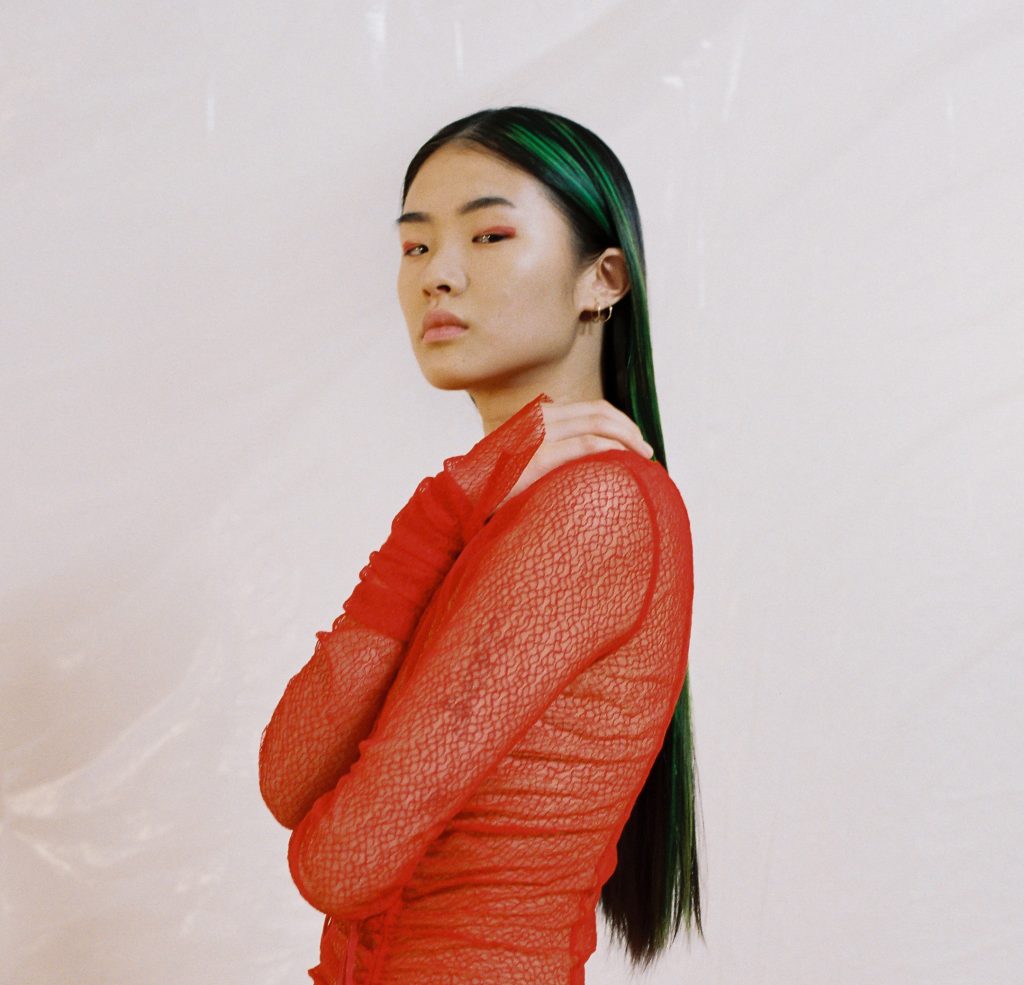
**I find myself appreciating platforms like IMVU or Second Life, where you can alter your body, or fly around an entire world. In some ways, these settings feel more liberating because they’re not trying to mirror real life.
m: I spent half of my teens that way. I learned a lot of my English on a MMORPG [massively multiplayer online role-playing game] and spoke most to internet friends at that time. Looking back, it so obviously is a strong signifier for being displaced in your physical surroundings. I agree with you completely, these virtual worlds allow you to create a persona, or to just express yourself in a way you cannot in real life, and I love that so much. I find myself at a point in my life where I don’t need that as much but ‘wow’ it was essential when I was 15 [years old]. It’s like a highly amped-up and much less risky version of going in on your club fit.
**Last question, at what point should we log off?
m: I guess, ideally, we should be logging on for certain things and not even see that as the more permanent state… but the dopamine.**
